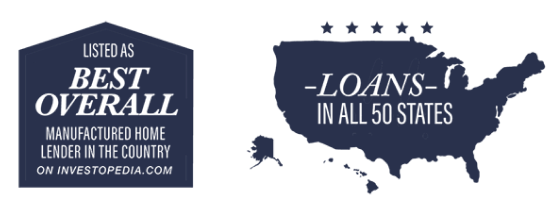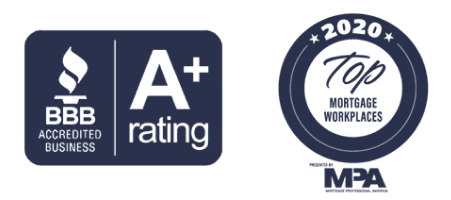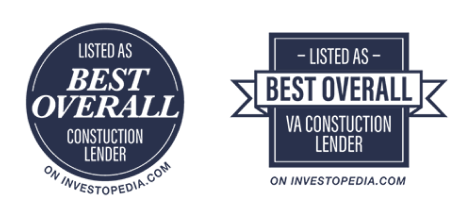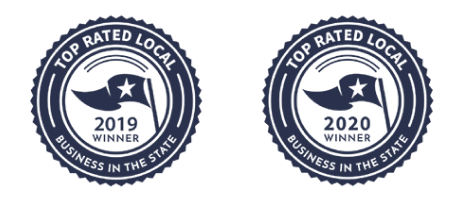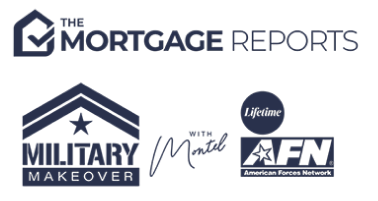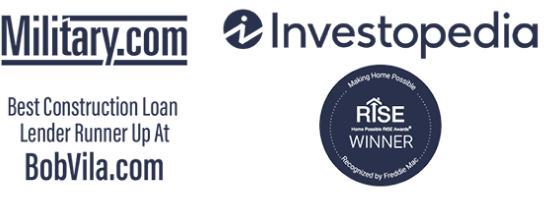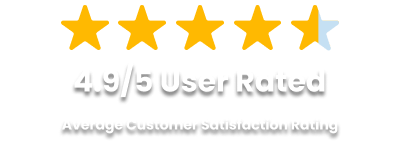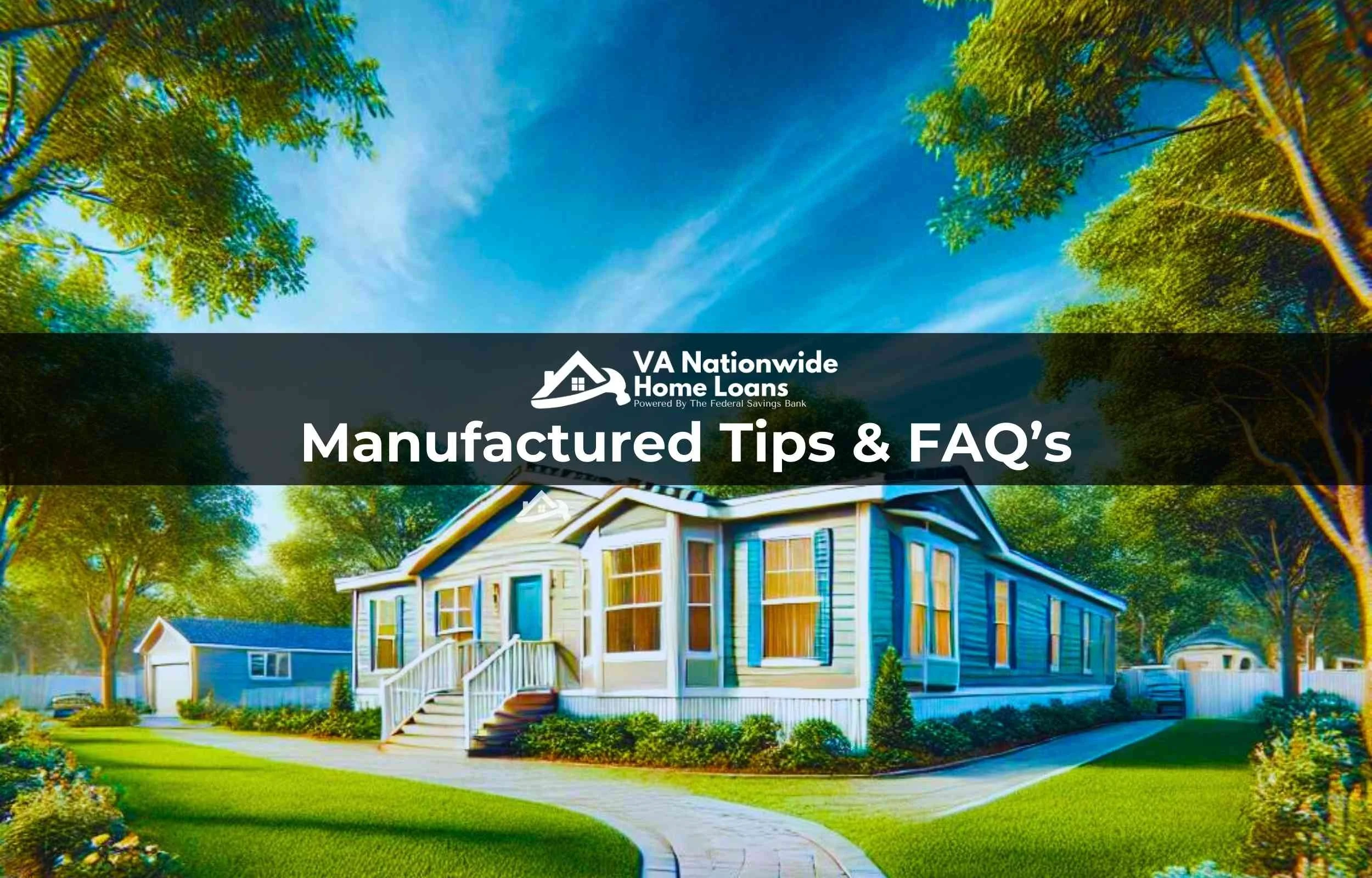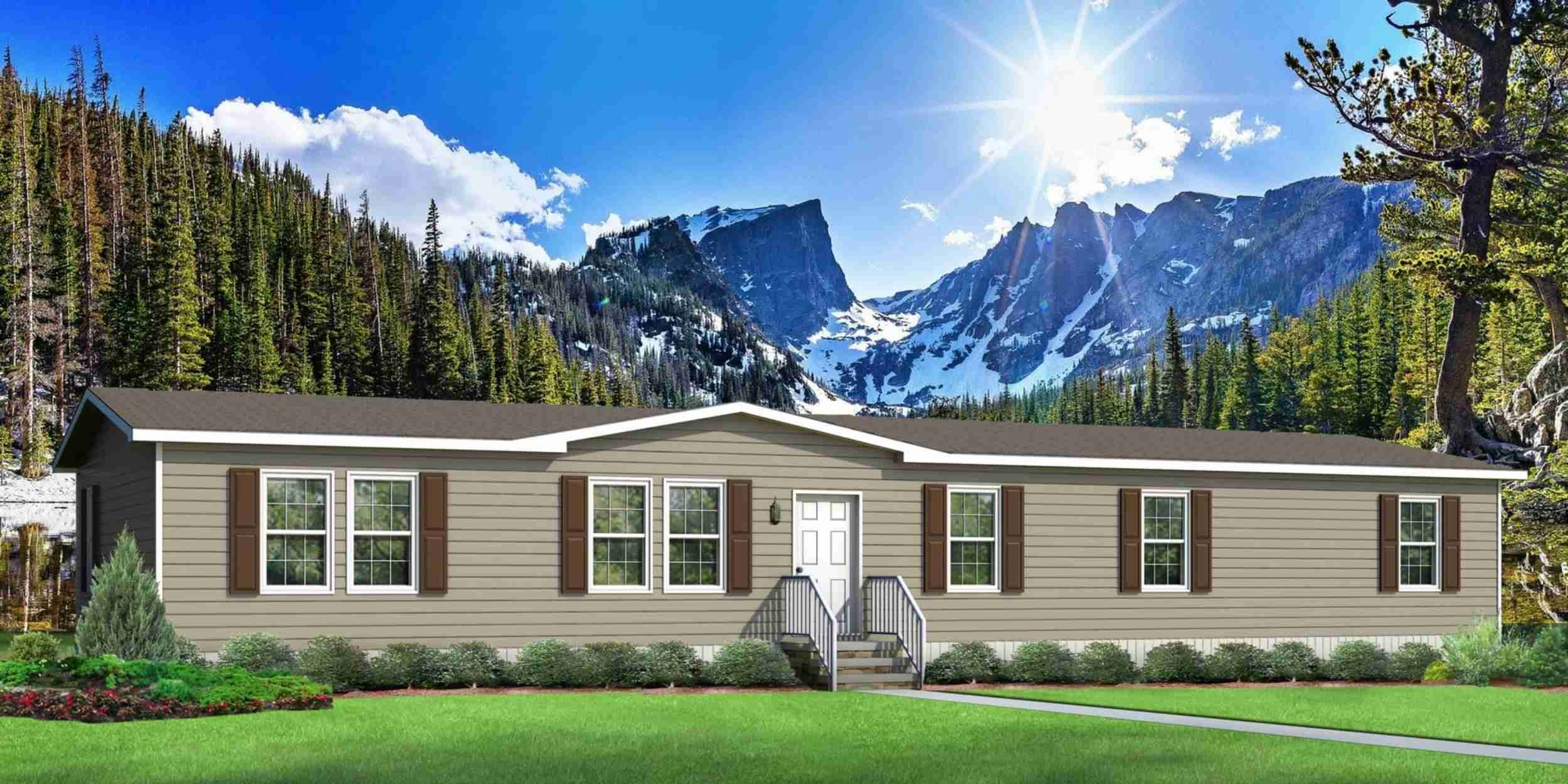
VA Manufactured Home Loans: Single, Double, & Triple-Wide Up To 100%
As a Veteran seeking a VA manufactured home loan, you have a powerful ally with VA Nationwide. Our goal is to provide you with extra value not offered at other banks while providing more detailed information than you will find in other articles.
We created this easy-to-digest guide to explain the most important parts of getting started, from eligibility requirements to the application process and what makes us unique.
First, What Is The Difference Between Manufactured & Mobile?
Consumers often use "mobile home" and "manufactured home" interchangeably, but they have key differences, especially for a VA mortgage qualification.
A manufactured home must be built after June 15, 1976, on a permanent foundation that meets HUD and VA standards, ensuring stability, durability, and code compliance. These homes are factory-built and transported to their final location, offering affordable, high-quality housing that is often a more green-efficient option.
A mobile home usually refers to pre-1976 structures or properties that are moveable and lack a permanent foundation. These homes do not meet VA financing requirements due to their age restriction, non-permanent nature, and lower structural standards. Mobile loans fitting this criteria would require a chattel or private loan instead.
VA Eligibility Requirements for Manufactured Home Loans
Let's jump right into it: to qualify, you or the main borrowers must personally meet specific criteria set by the VA:
Service Requirements:
90 consecutive days of active service during wartime
181 days of active service during peacetime
6 years of service in the National Guard or Reserves
Surviving spouse of a service member who died in the line of duty or as a result of a service-connected disability
Occupancy Requirements:
You must intend to occupy the home as your primary residence
Income and Debt Ratio Requirements for VA Loans
Understanding the income and debt ratio requirements is crucial for ensuring loan approval when applying for a VA loan through the VA Administration.
Income Requirements:
Stable and Reliable Income: Borrowers must demonstrate a stable and reliable income sufficient to cover mortgage payments, living expenses, and other obligations. This includes income from employment, retirement, disability benefits, and other sources.
Residual Income: The VA requires a specific amount of residual income, which is the income remaining after paying all monthly obligations. This ensures borrowers have enough funds for basic needs. Residual income requirements vary based on family size and location.
Debt-to-Income (DTI) Ratio:
Max DTI Ratio: The VA typically prefers a DTI ratio of 41% or lower. This means your monthly debt payments, including the mortgage, should not exceed 41% of your gross monthly income.
Flexible Guidelines: While the 41% DTI ratio is a guideline, the VA considers compensating factors such as excellent credit history, significant residual income, and substantial savings, which can help approve loans with higher DTI ratios. This is why we use our internal loan committee to help review loans with such qualifying factors.
These requirements ensure borrowers can manage their mortgage payments alongside other financial responsibilities, promoting long-term financial stability and homeownership success. Click here to use our Income To Debt Ratio Calculator to determine your front-end and back-end ratios for easy loan qualifying.
Credit Score Requirements
While the VA doesn't set a minimum credit score, most VA-approved lenders typically look for a score of at least 620. Some compensating factors may allow you to qualify with scores lower than 620.
Credit Tips To Consider
Check and review your credit report: Before applying, check your report for any errors or inaccuracies that could affect your creditworthiness. Correcting errors greatly improves your chances of loan approval.
Improve your credit score: Paying off debts, reducing credit card balances, and making timely payments improve your credit score. A higher credit score can increase your eligibility for favorable loan terms and lower interest rates.
Lenders thoroughly review credit history: Lenders will carefully examine your credit history, including any tax liens, judgments, or collections. Negative marks can impact your loan approval.
Understand credit requirements: Each loan program has specific credit requirements and guidelines. Familiarize yourself with the minimum credit score and debt-to-income ratio required; this may differ from bank to bank.
Seek professional guidance: Consulting with a credit counselor, one of our in-house bankers, or financial advisors can help you improve your credit profile.
Pay attention to your credit and take steps to improve it if necessary to ensure a smooth loan application process and increase your chances of approval.
Property Requirements.
To qualify for a VA loan, your manufactured home must meet specific requirements set by the VA and HUD:
Real Property Classification: The home must be classified as real property, not personal property. This typically means it must be permanently affixed to the land, have its wheels and axles removed, and be titled as such at the recorder's office.
Permanent Foundation Requirements: The home must be affixed to a permanent foundation that meets VA standards, ensuring stability and durability. We have a full section explaining more further below.
Minimum Size Requirements: A single-wide home should have at least 400 square feet of living space or 700 square feet for a double-wide home.
HUD Code Compliance: The home must meet HUD code standards for manufactured homes, covering structural design, fire safety, energy efficiency, and durability.
Local Zoning Compliance: The property must comply with all local zoning laws and regulations.
VA Minimum Property Requirements (MPRs): The home must meet VA MPRs, ensuring the property is safe, structurally sound, and sanitary.
Age of the Home: While the VA doesn't have a specific age limit, we require these homes to be built after June 15, 1976, when the HUD code was enacted.
Utility Connections: The home must be properly connected to all necessary utilities, including water, sewage, and electricity.
Eligible Property Styles
VA loans cover various property styles for manufactured VA approved homes, ensuring they meet specific standards to qualify for financing. The eligible property styles include:
Single-Wide Homes: Must have a minimum floor area of 400 square feet.
Double-Wide Homes: Require at least 700 square feet of living space.
Triple-Wide and Quadruple-Wide Homes: These larger manufactured homes are also eligible, provided they meet the size and HUD code requirements.
These homes must have HUD tags indicating compliance with the U.S. Department of Housing and Urban Development standards and be placed on a permanent foundation that meets VA and HUD guidelines.
Other home styles, such as modular homes, kit homes, barndominiums, panel-style homes, ICF (Insulated Concrete Form) homes, foam homes, and 3D-printed homes, are not classified as manufactured homes. These property types can qualify for traditional VA loans, similar to site-built homes, as long as they meet the VA's minimum property requirements and are affixed to a permanent foundation.
VA Manufactured Home Foundation Requirements
Permanent Foundation System:
The manufactured home must be affixed to a permanent foundation system, including removing wheels and axles, towing hitches, and titling as real property.
Engineered Foundation Design:
The foundation must be designed by a licensed professional engineer or architect. This ensures that the foundation meets all necessary structural and safety standards.
Compliance with HUD Guidelines:
The foundation system must comply with the guidelines outlined in the HUD Permanent Foundations Guide for Manufactured Housing (HUD-7584). These guidelines include detailed specifications for footings, piers, and anchorage systems to provide stability and resist lateral and uplift forces.
Anchoring and Tie-Downs:
The home must be securely anchored to the foundation to prevent shifting or movement. This involves using tie-downs or properly installed anchors according to the engineered design.
Skirting and Crawl Space:
If the home has a crawl space, it must be enclosed with skirting to protect the underside of the house. The skirting must also allow for adequate ventilation to prevent moisture build-up and potential damage.
Utility Connections:
The manufactured home must be connected to all necessary utilities, including water, sewage, and electricity, in a manner that complies with local building codes and standards. Off-grid housing is not allowed.
Permanent Footings:
The foundation must include permanent footings that extend below the frost line to prevent movement due to frost heave. The footings should be constructed from materials that provide adequate strength and durability.
Verification and Inspection:
A VA-approved appraiser or inspector must inspect and verify the foundation installation to ensure compliance with all VA and HUD requirements. Documentation of the inspection and compliance must be provided to the VA as part of the loan approval process.
Requirements for Previously Moved Manufactured Homes:
The VA allows financing for manufactured homes moved once after the original installation. This relocation must be certified by a licensed professional engineer, ensuring that the move has not compromised the structural integrity or safety of the home. Financing a manufactured home moved after the original installation is prohibited under any other program, such as FHA, Conventional, or USDA.
Working with a lender like VA Nationwide and contractors familiar with VA and HUD guidelines helps ensure all foundation criteria are met.
Benefits Of Selecting A VA Loan
VA manufactured home loans offer several significant advantages over conventional loans, making homeownership more accessible and affordable for eligible veterans and service members:
No Down Payment: In most cases, eligible borrowers can purchase a home without a down payment, removing one of the biggest barriers to homeownership.
Lower Interest Rates: VA loans typically offer lower interest rates than conventional or FHA loans, resulting in significant savings over the life of the loan.
No Private Mortgage Insurance (PMI): VA loans don't require PMI, saving borrowers hundreds of dollars monthly.
Flexible Credit Requirements: The VA's flexible credit guidelines make it easier for veterans to qualify.
Limited Closing Costs: The VA limits the closing costs that veterans can pay, and sellers can pay all of a buyer's closing costs and concessions up to 4% of the home's value.
No Prepayment Penalties: VA loans don't have prepayment penalties, allowing borrowers to make extra payments or pay off the loan early without incurring fees.
Assumable Mortgages: VA loans are assumable, meaning a future buyer could take over your VA loan terms.
Foreclosure Avoidance Assistance: The VA provides foreclosure avoidance assistance to help you keep your home.
Choosing The Best VA Loan Type
Our bank offers hundreds of program options; you can choose which may be the best VA loan type for your manufactured home from the choices below:
VA Construction Loans for New Manufactured Homes from Dealers:
These loans cover buying land and purchasing a new manufactured home from a dealer. They simplify the process by combining land purchase and home construction into one loan. We offer one-time close and two-time close construction loans in-house. You may even like using our handy Construction Loan Calculator to estimate your costs and payments.
VA Purchase Loans for Manufactured Homes:
This option is used only when buying an existing manufactured home on a permanent foundation.
VA Renovation Loans for Manufactured Homes:
These loans allow you to buy an existing home and add renovation financing at the same time or rehab a home you already own. This is ideal for those looking to update or improve an existing property.
VA Refinance Loans for Manufactured Homes:
If you already have a loan on your manufactured home, you might be able to refinance it into a VA loan, potentially lowering your interest rate or monthly payments.
VA Interest Rate Reduction Refinance Loan (IRRRL):
A "streamline" refinance allows you to refinance an existing VA loan to a lower interest rate with minimal paperwork. No credit score or appraisal is used, and it still allows you to refinance at a lower rate if you don’t need cash out.
VA Cash-Out Refinance for Manufactured Homes:
This option allows you to tap into your home's equity, replacing your current loan with a new one for a larger amount and pocketing the difference in cash.
Native American Direct Loan (NADL) Program:
This special program helps Native American veterans finance the purchase, construction, or improvement of homes on Federal Trust Land. Unfortunately, we do not currently offer the NADL program.
Take advantage of the best VA loans for manufactured homes and realize your homeownership dreams by contacting us today.
VA Manufactured Home Loan Application Process
Applying for a VA manufactured home loan involves several steps; we share more about this process below:
Obtain Your Certificate of Eligibility (COE): This document proves to lenders that you're eligible for a VA loan. You can apply for your COE online through the VA's eBenefits portal, through your lender, or by mail using VA Form 26-1880.
Choose The Best VA Mortgage Lenders For You: Not all lenders offer VA loans for manufactured homes, so it's important to find one that does. Research different lenders and compare their rates and terms. We offer these loans and actually provide many valuable features not seen at other banks. We share more about this in a few sections further below.
Get Pre-Approved: Pre-approval shows you how much you can borrow and shows sellers you're a serious buyer. To get pre-approved, you must provide the lender with information about your income, assets, and debts.
Shop For Your Home: With pre-approval, you can look for homes within your budget. Consider working with a real estate agent experienced in manufactured homes and VA loans.
Complete a Loan Application: Once you've found a home, you must complete a full loan application. This will require detailed information about your finances and the property you're purchasing.
Undergo the VA Appraisal Process: The VA will send an appraiser to assess the home's value and ensure it meets all VA requirements. This is different from a home inspection, which you should also consider getting.
Loan Processing and Underwriting: The lender will review your application and the appraisal report. They may ask for additional documentation during this stage.
Close Your VA Loan: If your loan is approved, you'll attend a closing meeting to sign all the necessary documents and receive the keys to your new home.
Manufactured Home Loan Rates
Understanding the rates for manufactured home loans can help you make informed decisions and find the best financing options. While specific rates can vary based on your credit score, loan type, and other factors, here are some key points to consider:
Factors Influencing Rates: Rates for manufactured home loans are influenced by your credit score, the type of home (new or used), whether you are also purchasing the land, and the specific loan program (FHA, VA, USDA, Conventional).
Get Personalized Rates: At VA Nationwide, we offer personalized rate information tailored to your financial situation. Contact our experienced bankers to get live pricing and discuss the best options for your specific needs.
Seeking the Best VA Rates: Please contact us to check your eligibility for our best VA rates. One of our bankers will contact you with live pricing based on your loan scenario and discuss the options available for your specific needs. When speaking with our bankers, you’ll want to discuss other quotes you may have received to determine the differences in program type, loan to value (LTV), terms, and particular details. For example, you may have a broker assuming your manufactured home is priced the same as a site-built home due to their inexperience with this property type, or they are pricing you for a purchase loan and not a “new purchase from dealer” loan. These make huge differences in the rate you receive.
Contact VA Nationwide today to speak with one of our experienced bankers and get the best rates for your manufactured home loan.
Exclusive Offers When Choosing VA Nationwide as Your Lender
1. Significant Savings with Local Agents:
Receive up to 30% of your agent's commission as a closing cost credit when you buy or sell land or a home through one of our local agents. This can save hundreds to thousands of dollars and is currently available in 42 of 50 US states.
2. Extra Consumer Financing:
You can access up to $50,000 in additional financing before or at closing. Use this to pay off debt, furnish your home, update a rental unit, or meet other capital needs.
3. Flexible Loan Approval:
Our in-house loan committee can approve loans that might be turned down elsewhere by considering compensating factors beyond standard guidelines.
Why VA Nationwide?
Experienced Problem Solvers:
We often help clients close loans for manufactured or mobile homes when other lenders fall short, especially close to closing.
Comprehensive Loan Options:
We offer VA, FHA, and Conventional Financing for single, double, triple, and quadruple-wide homes, provided they are permanently fixed on land you own, built after June 15, 1976, and taxed as real property.
Specialized Veteran Programs From A Veteran Owned Bank:
We’re a Veteran-Owned Bank; we offer competitive rates and tailored programs for Veterans, Active or Retired, and their spouses. Mortgage loans we offer may provide more advantageous benefits than those from other lenders or when compared with a chattel loan.
Decades of Expertise:
With over 100 years of combined experience and 25 years as a dedicated team, we specialize in VA manufactured homes across all 50 states. Our deep understanding of the unique restrictions and limitations allows us to create innovative solutions and opportunities for our clients.
Tips for a Successful Manufactured Loan Experience
Research Manufactured Home Builders: Research the reputation and track record of different manufacturers. Read reviews, check their ratings with the Better Business Bureau, and, if possible, talk to current homeowners.
Consider Energy-Efficient Features: Energy-efficient manufactured homes can qualify for the VA's Energy-Efficient Mortgage program, potentially allowing for energy-efficient improvements.
Understand the Total Cost of Ownership: Besides the purchase price, consider costs like land rent (if applicable), utilities, maintenance, and potential HOA fees.
Stay Organized: Keep all your documents organized and readily accessible. This can help speed up the loan process and reduce stress.
Be Prepared for the VA Appraisal: Understand what appraisers look for and be prepared to address any issues they might find.
Consider the Location Carefully: The location of your manufactured home can significantly impact its long-term value. Consider factors like the quality of local schools, proximity to amenities, and the overall desirability of the area.
Understand Your Loan Terms: Make sure you fully understand the terms of your loan, including interest rate, repayment period, and any fees or charges.
Plan for the Future: Consider how long you plan to live in the home and how your needs might change over time. This can help you choose a home that will serve you well for years to come.
FAQs
-
Yes, the VA provides loans for eligible veterans to finance manufactured homes, provided the home meets certain criteria, such as being affixed to a permanent foundation and taxed as real estate.
-
Yes, VA home loans cover single, double, triple, and quadruplewide manufactured properties built after June 15, 1976. VA loans may offer no down payment, lower interest rates, and no private mortgage insurance.
-
Yes, you can get a VA loan for mobile homes, but the house must meet specific requirements, such as being permanently affixed to your own land.
-
Yes, you can get a VA loan on a manufactured home if it meets the VA’s property requirements, including being affixed to a permanent foundation and classified as real property.
-
Yes, we offer one-time and two-time close construction loans for buying a new manufactured home from a dealer and buying land or paying of existing land at the same time.
-
Permanent real estate mortgages, such as Conventional, FHA, USDA, VA, and non-QM, are used for manufactured homes on owned land.
-
Getting pre-approved helps streamline the home-buying process with your lender and shows real estate agents you’re a serious and qualified buyer.
-
Modern manufactured homes have improved in construction and design, meeting rigorous standards for safety and durability along with faster adoption of green efficiency.
Common Challenges and Solutions
While VA manufactured home loans offer many benefits, there are some challenges to be aware of:
Stricter Property Requirements: Manufactured homes must meet specific standards to qualify for a VA loan. Before making an offer, ensure the home meets all VA and HUD standards. Consider getting a pre-purchase inspection to identify any potential issues.
Misconceptions about Manufactured Homes: Some people have outdated perceptions about the quality and value of manufactured homes. Educate yourself on modern manufactured home construction and quality. Visit model homes and talk to current owners to get a realistic picture.
Depreciation Concerns: While all homes can potentially depreciate, manufactured homes are sometimes perceived as depreciating faster. To mitigate this, choose a high-quality home from a reputable manufacturer, maintain the home well, consider a double-wide or multi-section home, and, if possible, purchase the land along with the home.
Longer Processing Times: Manufactured loans can sometimes take longer to appraise, provide engineering certifications, and process than traditional site-built homes. To help speed up the process, stay in close communication with our bankers and respond promptly to any requests for information.
Other Mobile Home Loans and Manufactured Programs - Image of a manufactured home on a sunny day - VA Nationwide
Alternate Programs Other Than VA
Chattel Loans: These are personal property loans typically used for financing mobile homes that are not permanently attached to land. While not offered by VA Nationwide, owning the land offers more stability and financing options. To finance a manufactured home on leased land, search for a "chattel loan lender near me" or check local credit unions or private lenders.
Conventional Loans: These are traditional mortgages that are not insured or guaranteed by the government. They usually require higher credit scores and down payments.
FHA Loans: Insured by the Federal Housing Administration, these loans are designed to help lower-income borrowers with more flexible credit requirements.
Non-QM (Non-Qualified Mortgage) Loans: These loans do not meet the Consumer Financial Protection Bureau (CFPB) criteria for Qualified Mortgages, offering more flexibility in income verification and credit requirements.
USDA Loans: These are government-backed loans aimed at rural homebuyers, offering low-interest rates and zero down payment options.
Get Started:
If you’re considering financing options for a manufactured home, it’s worth reaching out to see how we can help you achieve your homeownership goals with competitive rates and tailored programs.
Connect with us today to explore options and start your journey toward owning a manufactured home with VA Nationwide!
